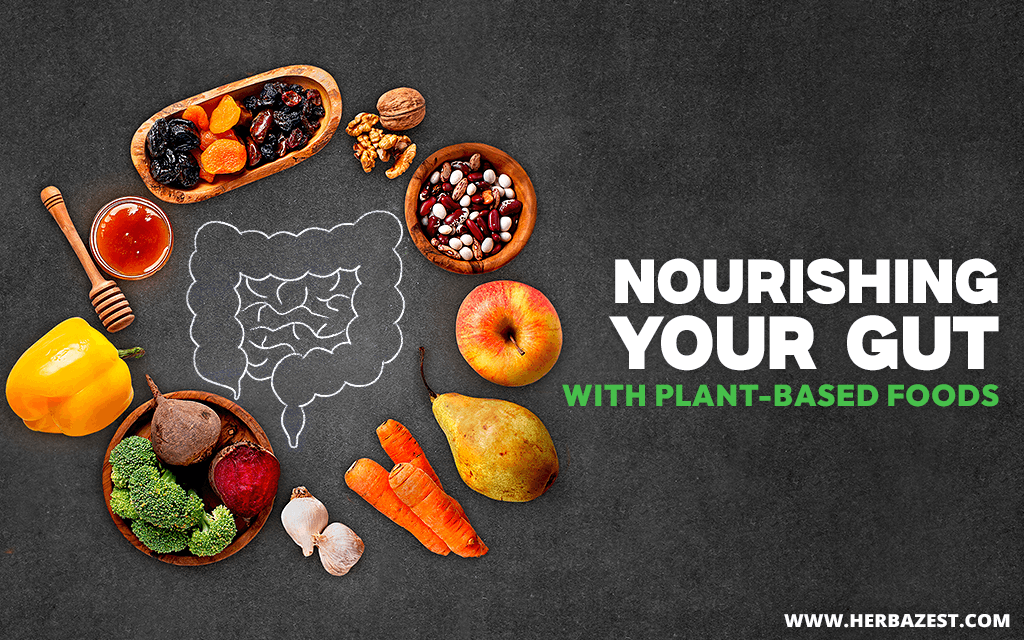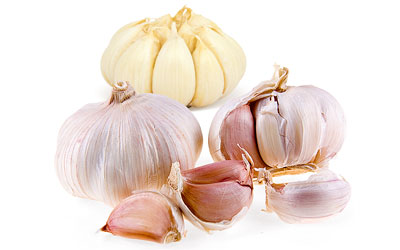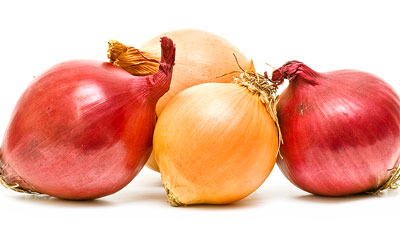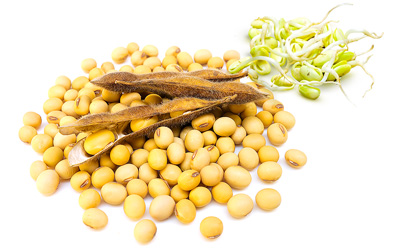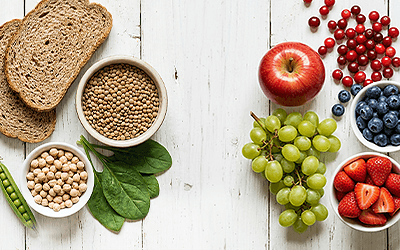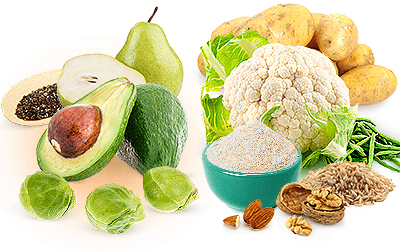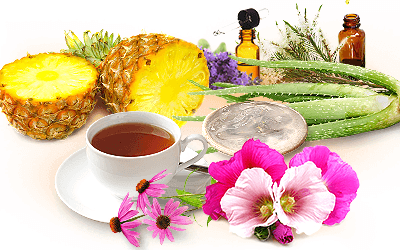Nowadays, the connection between diet and health is a major focus of research and public interest, especially concerning the impact of food on the gut. As research continues to uncover more details about this intricate relationship, it becomes increasingly clear that plant-based foods are a powerful tool for maintaining and improving gut health. Read on to explore how plant-based foods benefit the gut and discover easy ways to add them to your meals!
Understanding Gut Health
Despite its popularity in recent years, the term “gut health” has no official definition. From the medical standpoint, it typically refers to the absence of disease in the gastrointestinal tract.
However, in everyday usage, the term “gut health” tends to relate to the balance and function of the gut microbiota, a diverse community of 100 trillion microorganisms that live in the gastrointestinal tract, such as bacteria, viruses, and fungi.
Benefits of Plant-Based Foods for Gut Health
A healthy gut microbiota has been linked to numerous health benefits, from enhancing nutrient absorption, boosting immune function, and regulating mood to reducing inflammation and lowering the risk of chronic diseases.1,2,3
Research suggests that consuming plant-based foods can lead to a more diverse gut microbiota, which is associated with better health outcomes.4
Fruits, vegetables, whole grains, legumes, nuts, and seeds provide a wide array of nutrients and beneficial compounds that support gut health, including the following:
Dietary Fiber
One of the most unique benefits of plant-based foods is their high fiber content. Instead of being digested, fiber passes through the digestive tract relatively intact, promoting regular bowel movements and preventing constipation. Moreover, certain types of fiber act as prebiotics, providing food for beneficial gut bacteria, which ferment the fiber into short-chain fatty acids (SCFAs). These, on the other hand, play a crucial role in maintaining gut health by nourishing colon cells, reducing inflammation, and supporting the gut barrier function.
Probiotics
Probiotics are live microorganisms, mainly bacteria and yeasts, that provide health benefits, including enhancing immunity. Probiotics contribute to the balance of the gut microbiota by increasing the population of beneficial bacteria. This competitive exclusion helps to limit the growth and colonization of harmful bacteria, thereby supporting overall gut health. Plant-based sources of probiotics include kimchi or sauerkraut (fermented cabbage), kombucha (fermented tea), and tempeh (fermented soy).
Polyphenols
Naturally occurring compounds found in plant foods, polyphenols, are known for their potent antioxidant properties. They are abundant in fruits, vegetables, tea, turmeric, coffee, and wine and help to modulate the gut microbiota composition, promoting the growth of beneficial bacteria while inhibiting harmful ones. This modulation supports a healthy gut environment, reducing the risk of dysbiosis—a microbial imbalance associated with various health issues.
Vitamins and Minerals
Plant-based foods are typically rich in essential vitamins and minerals such as vitamins A, C, E, and K, as well as magnesium, potassium, zinc, and folate. These nutrients are vital for maintaining the integrity of the gut lining, supporting immune function, reducing inflammation, and promoting the growth of healthy gut bacteria.
Other Phytochemicals
Fruits, vegetables, legumes, and grains also contain a richness of other bioactive compounds like flavonoids, carotenoids, and glucosinolates, which are recognized for their anti-inflammatory and antioxidant properties. They help reduce inflammation in the gut, support the immune system, and protect against chronic diseases, among other benefits.
Adding Plant-Based Foods to Daily Meals
Incorporating more plant-based foods into your everyday diet is a simple yet effective step toward better gut health. Here are some practical tips to help you get started:
1. Enrich Your Meals with Fiber
Soluble and insoluble fiber work together in a complementary way to promote gut health, so it's beneficial to eat nutritious sources of both types. Some of the best foods rich in prebiotic fiber are chicory, garlic, onions, asparagus, and bananas.
2. Diversify Your Diet
Experiment with a variety of plant-based foods to obtain a broad spectrum of nutrients and beneficial compounds to support a diverse and resilient gut microbiota.
3. Stay Hydrated
Fiber works best when you drink plenty of water. Staying hydrated helps fiber move through your digestive system smoothly, ensuring regular bowel movements.
4. Include Fermented Foods
Give your gut a boost of probiotics by adding fermented plant-based foods into your meals, including sauerkraut and miso, which can enhance digestion and support a healthy microbiome.
5. Limit Processed Foods
While some processed plant-based foods can be convenient, they often lack nutrients and fiber. Focus on whole, minimally processed foods for optimal gut health.
Incorporating a variety of fiber-rich, nutrient-dense plant foods into your diet can significantly promote a healthy gut microbiota, enhancing your overall well-being. The benefits of a gut-friendly diet are further amplified when combined with other supportive practices like stress relief and regular exercise. Start your journey towards better gut health by exploring the diverse array of delicious and nutritious plant-based foods available. Your gut will thank you, and your overall health will thrive.
Sources
- Antioxidants (Basel), Vitamin C Supplementation in Healthy Individuals Leads to Shifts of Bacterial Populations in the Gut – A Pilot Study, 2021
- Better Health, Gut health, 2023
- BioFactors, Gut microbiome-micronutrient interaction: The key to controlling the bioavailability of minerals and vitamins? 2022
- Cleveland Clinic, How Your Gut Microbiome Impacts Your Health, 2022
- Harvard Health Publications, Healthy gut, healthier aging, 2023
- International Journal of Molecular Sciences, The Impact of Plant Phytochemicals on the Gut Microbiota of Humans for a Balanced Life, 2022
- Johns Hopkins Medicine, Your Digestive System: 5 Ways to Support Your Gut Health, n.d.
- Molecules, Probiotics Regulate Gut Microbiota: An Effective Method to Improve Immunity, 2021
- Nutrients, Curcumin and Its Potential Impact on Microbiota, 2021
- Scientific Reports, The potential role of vitamin D supplementation as a gut microbiota modifier in healthy individuals, 2020
Footnotes:
- Integrative Medicine: A Clinician's Journal. (2014). The Human Gut Microbiome in Health and Disease. Retrieved July 4, 2024, from https://www.ncbi.nlm.nih.gov/pmc/articles/PMC4566439/
- Cleveland Clinic. (2023). Gut Microbiome. Retrieved July 4, 2024, from https://my.clevelandclinic.org/health/body/25201-gut-microbiome
- Current Pharmacology Reports. (2020). Gut microbiota, dietary phytochemicals and benefits to human health. Retrieved July 4, 2024, from https://www.ncbi.nlm.nih.gov/pmc/articles/PMC7678755/
- Colorado State University. (n.d.). The Gut Microbiome and Health. Retrieved July 4, 2024, from https://extension.colostate.edu/topic-areas/nutrition-food-safety-health/gut-microbiome-health-9-390/

